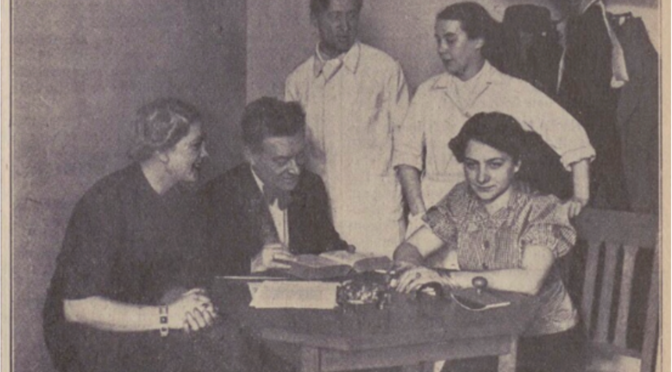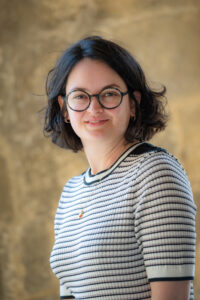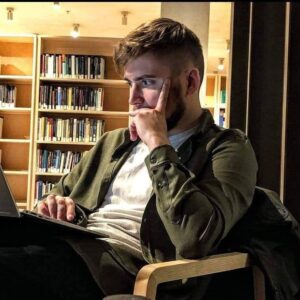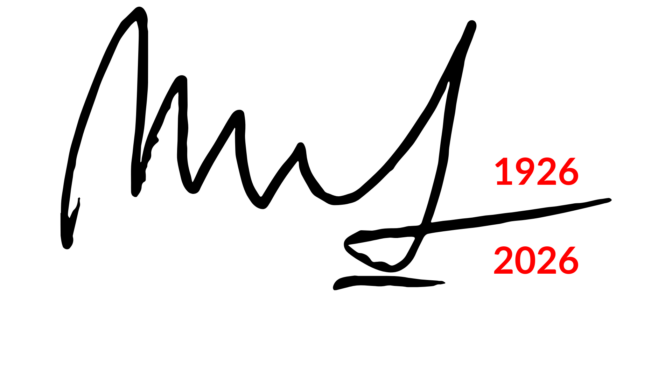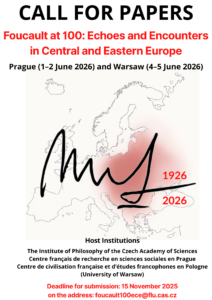„Soud dědiců: paměť Gulagu v současné ruskojazyčné literatuře (2000–2022)“
Výzkumné osy 1 a 2: Přemístění, vykořenění, odchýlení: lidé, vědění, praktiky a Normy a transgrese
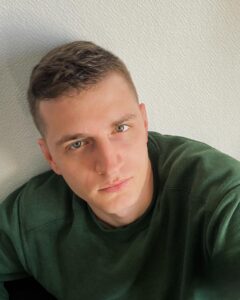 Jeho výzkum se zaměřuje na ruskojazyčkou beletrii vydanou v letech 2000 až 2020, jejíž hlavním tématem je Gulag a předávání vzpomínek na něj v postsovětském prostoru. Tato tvorba, jejíž význam vrcholil kolem roku 2010 (Jones 2024), zapadá jak do globálního rozmachu fenoménu „postpaměti “ (Hirsch 2012), tak do specifického politického kontextu. Ten se vyznačuje rostoucím napětím mezi Ruskem a ostatními státy vzniklým po rozpadu SSSR a to v oblasti historické (Koposov 2018) i politické, vlivem zpřísnění represivní politiky Putinova režimu vůči jeho oponentům.
Jeho výzkum se zaměřuje na ruskojazyčkou beletrii vydanou v letech 2000 až 2020, jejíž hlavním tématem je Gulag a předávání vzpomínek na něj v postsovětském prostoru. Tato tvorba, jejíž význam vrcholil kolem roku 2010 (Jones 2024), zapadá jak do globálního rozmachu fenoménu „postpaměti “ (Hirsch 2012), tak do specifického politického kontextu. Ten se vyznačuje rostoucím napětím mezi Ruskem a ostatními státy vzniklým po rozpadu SSSR a to v oblasti historické (Koposov 2018) i politické, vlivem zpřísnění represivní politiky Putinova režimu vůči jeho oponentům.
Jeho práce se tak soustředí na období, v němž má památka Gulagu významný politický význam a vyvolává zásadní otázky o vztahu mezi občanem a státem, Ruskem a jeho sousedy. Tento literární korpus reprezentuje rozmanitost ideologických postojů, které rozdělují rusofonní intelektuální debatu a kteréí historii sovětských represí považují za významné pole pro vzájemnou konfrontaci. Vzhledem k tomu, že násilí páchané sovětským svazem nebylo soudně potrestáno a neexistuje konsensuální výklad těchto událostí, umožňuje fikce vytvoření symbolického prostoru, kde se vyprávění stává způsobem, jak minulost posoudit.
Disertační práce tuto otázkou ohledává na devíti beletristických dílech vydaných v letech 2001 až 2019, v nichž se o události zpětně posuzuje „dědic“, postava žijící v čase psaní románu. Jedním z cílů výzkumu je rozvoj právě tohoto pojmu – již používaného v oblasti studií paměti (Jurgenson & Prstojevic 2012; Barjonet 2022; Panico 2024). Postava dědice v textech ztělesňuje proces subjektivního přehodnocování minulosti. Jeho narativní strukturu a propojení s diskurzy různých „aktérů paměti“ (memory actors) (Bogumił 2018), kteří působí v postsovětském kontextu, chce práce prozkoumat.
Vzdělání:
– Septembre 2022 – En cours : Doctorat en études slaves à Sorbonne Université/Eur’ORBEM, sous la direction d’Hélène Mélat et Luba Jurgenson.
– 15-19 avril 2024 : École de printemps 4EU+ Pluralities of Memory Spring School: Borderlands of Memory, organisée par l’Université Charles de Prague.
– 11-15 juillet 2022 : École d’été 4EU+ Digital Memories: problems, methodologies, theories, organisée par l’Université de Milan.
– 2020-2022 : Master de recherche. Spécialité : Littérature russe. Sorbonne université.
Výběr vědeckých publikací:
– « Le cinéma en juge de l’histoire ? Le spectre de l’année 1938 dans le film Le capitaine Volkonogov s’est échappé », Revue des Etudes slaves, vol. XCV, n° 4, 2024, p. 565-580.
– « Tchapaev devint un zombie, mais il passait encore à la télé. La littérature russe des années 2000 dans les décombres de l’idéologie soviétique », Les Grandes figures historiques dans les lettres et les arts, n° 14, 2025. En ligne : https://www.peren-revues.fr/figures-historiques/651?lang=en.
– « Zapretnye rukopisi. Arheologija semejnoj pamjati v sovremennoj russkoj literature » [Les manuscrits interdits. Archéologie de la mémoire familiale dans la littérature russe contemporaine], Novoe Literaturnoe Obozrenie, n° 193/3, 2025, pp. 212-227.
Výběr z veřejných výstupů:
– « D. Bykov, Z. Prilepin: 20 let opravdanij sovetskogo Terrora » [D. Bykov et Z. Prilepine en miroir : 20 ans de justifications des répressions soviétiques]. Colloque international Being a writer under Putin. Inalco, Paris, mars 2025.
– « Echoes of Injustice: Russian-speaking literature coming to terms with the Soviet repressions ». Congrès annuel de l’Association canadienne des slavistes. Montréal, juin 2024.
– « Performing the Duty of Memory: Five Time Travel Narratives of the Great Patriotic War ». Colloque international Historical Past and Contemporary Propaganda in the Global Context. Bard College et Smolny Beyond Borders, Berlin, juin 2024.
Pedagogická praxe:
– Septembre 2022-mai 2025. Cours « Commentaire littéraire ». TD hebdomadaire destiné aux étudiants en deuxième année de licence LLCER Russe. Sorbonne Université.
– Septembre 2022-Mai 2023. Cours « Auteur, narrateur, personnage ». Séminaire bi-hebdomadaire destiné aux étudiants du Master recherche « Monde russe », spécialité littérature. Sorbonne Université.
Organizace vědeckých akcí:
– Avril 2023 – En cours. Cycle de rencontres « L’Observatoire du Sensible » (Sorbonne Université/Eur’Orbem, CREE, Université de Lille) : cycle de rencontres avec des auteurs russophones contemporains, parmi lesquels : Maria Stepanova, Daria Serenko, Galina Rymbu, Sergej Lebedev, Sasha Filipenko.
– 18-20 juin 2025. Conférence du Collettivo Giovani Slavisti. Université de Naples « L’Orientale ».
– 4-7 avril 2023. Colloque Sexe, sexualité, relations sexuelles dans la science-fiction. 11e Colloque international de Stella Incognita. Sorbonne Université (UFR d’études slaves, faculté des Lettres) et de l’École Polytechnique (Département Langues et Cultures et Chaire arts et sciences) ; l’École des Arts Décoratifs – PSL et la Fondation Daniel et Nina Carasso ; des laboratoires de recherche Eur’orbem et LinX, du laboratoire junior « Passage » ; de l’Institut d’études slaves et du Cinéma Le St André des Arts.
Další činnosti a členství:
– Depuis juin 2025. Membre du conseil d’administration de l’Institut d’Études slaves.
– Depuis septembre 2024. Co-coordinateur, avec Sarah Gruszka, du pôle « Histoire, mémoire et arts » du collectif de recherche Coruscant, branche européenne du Russia Program de l’Institute for European, Russian and Eurasian Studies (IERES) à la George Washington University.
– Depuis septembre 2023. Représentant du Labo Junior « Passage », constitué par les doctorants de l’UMR Eur’ORBEM.

